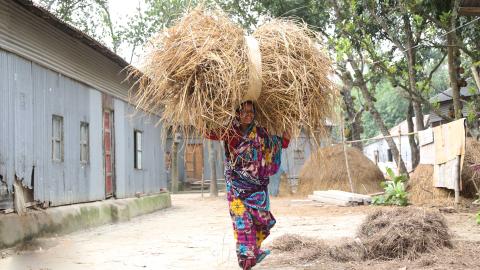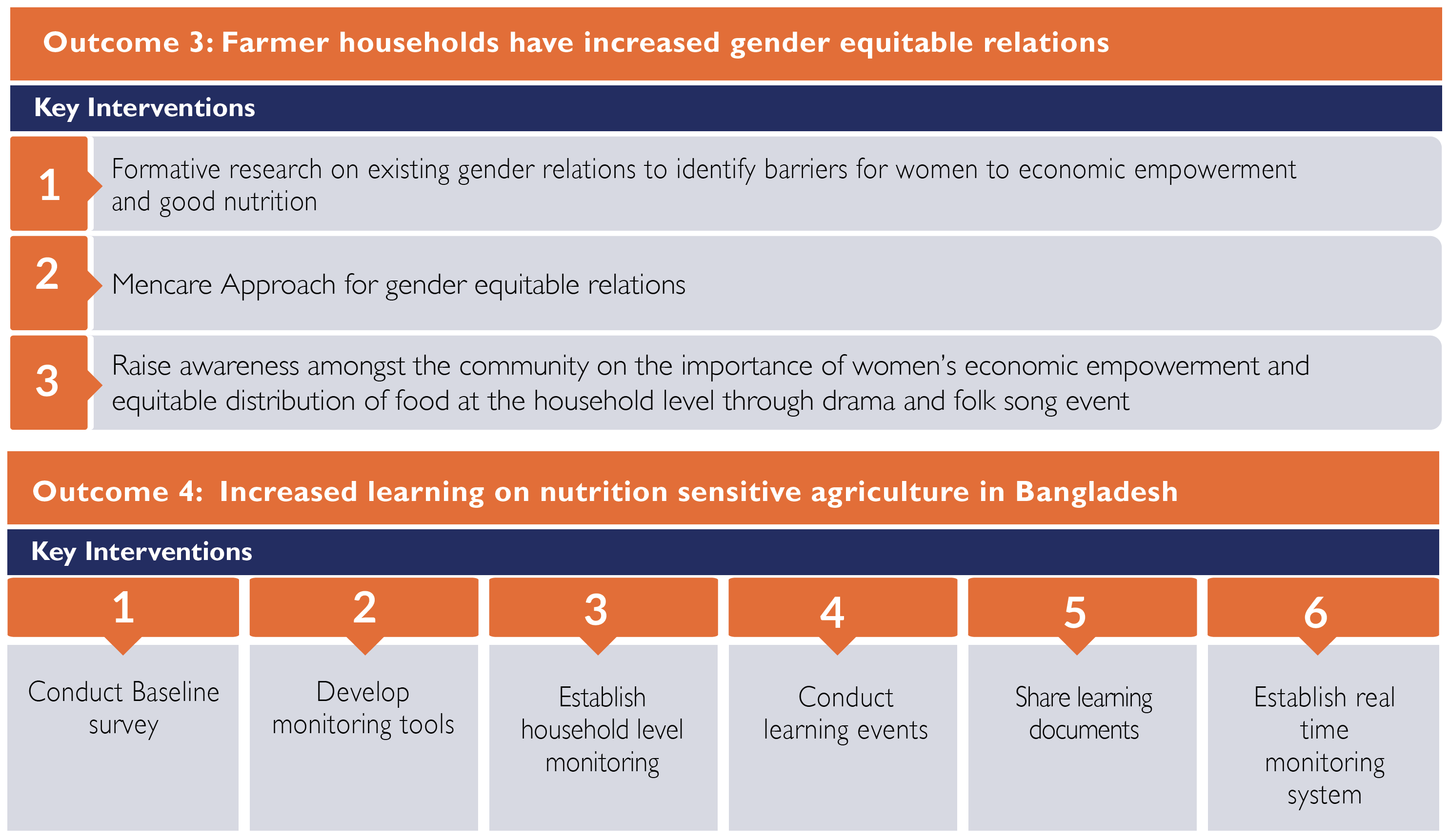
Nutrition Sensitive Value Chains for Smallholder Farmers (NSVC)

Background: The proposed 5-year USD 4.75 million project aims to improve nutrition of 20,000 smallholder male and female farmers and their households (HHs) in Jamalpur district, North Bangladesh. Adopting a nutrition sensitive agriculture (NSA) approach, it aims to improve nutrition through multiple pathways. First, it will increase incomes of male and female smallholder farmers and their HHs, through gender and nutrition sensitive value chain development, which encourages farmers to achieve high yields of agricultural products in market demand. This will provide farmers with the purchasing power to be able to purchase nutritious foods (income pathway). Second, the growth in production can also keep food more affordable (market pathway) through increased income and market access. Third, it will seek to improve the utilisation and consumption of nutritious food at HH level, by increasing availability of nutritious foods for HH consumption (production pathway). Fourth, it will increase learning on NSA in Bangladesh, particularly understanding causal relationships between income, spending on nutrition and women’s empowerment in Jamalpur Direct project beneficiaries will be 20,000 marginal farmers.
Start and End Dates: Start Date: 1 September 2017, End Date: 30 June 2022
Project Location: Dewanganj, Islampur and Jamalpur Sadar sub-districts of Jamalpur district, Bangladesh. The project will begin implementation in Jamalpur Sadar, after which it will expand to Dewanganj and Islampur based on lessons learnt in Jamalpur Sadar. This lessons will enable the partner to replicate good practices in two sub districts. It is expected that a minimum of a 3-6 month duration will be required to acquire learning lessons from the field.





"Nutrition Sensitive Value Chains for Smallholder Farmers (NSVC)" is supported by the Australian Government through the Australian NGO Cooperation Program (ANCP). Thanks to ANCP.